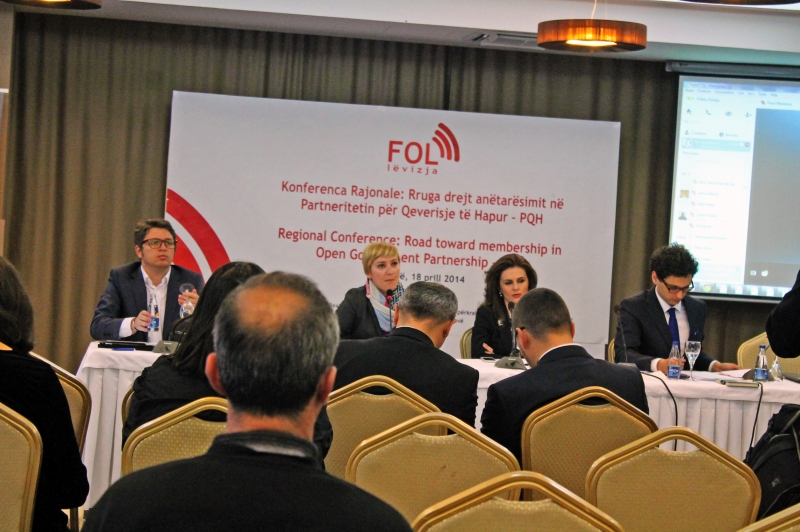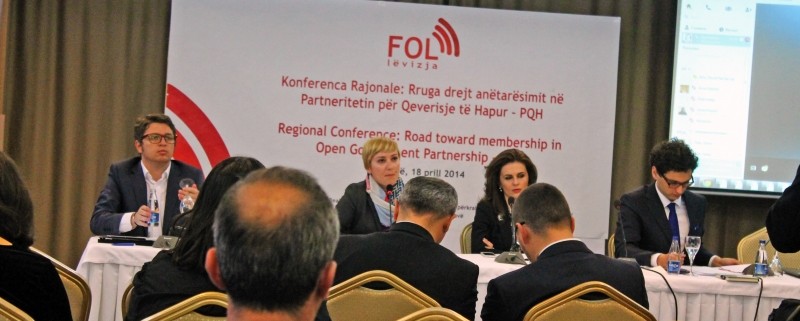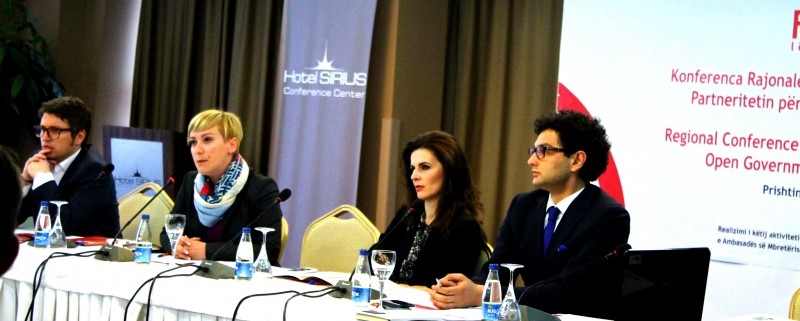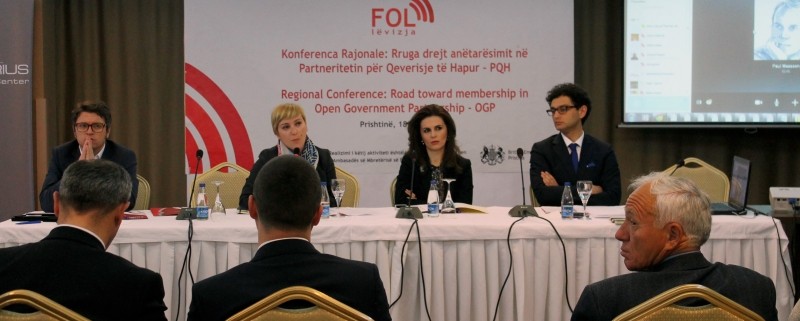Regional conference: Kosovo’s membership in the Open Government Partnership and regional experiences
Prishtina, 18 April 2014 – With the support of the British Embassy in Kosovo, today FOL Movement organized a regional conference on “The road towards membership in the Open Government Partnership – OGP”. The conference was attended by representatives of institutions and civil society from Kosovo and region, as well as representatives from OGP.
Minister of European Integration, Mrs. Citaku said that the Republic of Kosovo was committed to open government and use of technology in order to be more accessible by citizens . Mrs. Citaku mentioned that Kosovo faces a serious of challenges, where corruption is a serious challenge and the membership in OGP, is seen by Kosovo as an opportunity to intensify the efforts to fight corruption. She said that it was important that government and other institutions make their data public at the right time because the data that actually are public is not sufficient. Thus, according to Ms. Citaku, the open government aims to increase accountability, reduce inequality and increase access in education, and health care. According to Minister Citaku, despite any possible political problem in Kosovo’s qualifying process in OGP, Kosovo government must demonstrate a commitment to the principles of OGP by implementing the National Action Plan 2014-2016.
Paul Maassen , the coordinator of Civil Society in OGP, stressed that the main challenge for Kosovo and other member countries of OGP is the implementation of the National Action Plan, and then he said it takes not only political will but also the commitment of civil servants from several institutional. Kosovo National Action Plan is a plan that meets the principles of OGP, it provides concrete actions and results and it is a plan that is not based only on activities. The reforms foreseen in this plan will help a lot about how institutions will cooperate with citizens in decision-making. According to Mr. Maassen ” without civil society this process will not work and the challenges are that civil society remains involved and interested in the process.” And this is something that they should do it themselves, by working together but also the government should take seriously the demands and ideas of civil society and thus to achieve the joint ownership in the process.
Lorin Ymeri, from Ministry of Innovation and Public Administration of the Republic of Albania, presented the process through which Albania went through during the membership in OGP and work that the government is carrying out in the second action plan, a plan which Albania will submit to OGP. Ymeri said that this is the second action plan of the Government of Albania. Now we are interacting to get the observations of the civil society on the second plan.
Natalia Mirkovic, a representative of the GONG organization from Croatia, presented the experiences of Croatia during its membership in OGP. She said that during the period when Croatia was preparing to join the OGP, the country was going through an important period. During that year there were elections in Croatia as well as the process of joining the European Union. One of the challenges that she mentioned was the challenge of the involvement of local government in the OGP plan. According to her Croatia’s new action plan will focus more in local level. And there are many members who are interested to do more at a local level by opening the local budget.
Petrit Zogaj from FOL Movement, made a presentation of the performance FOL Movement so far within the Coordination Group in terms of Kosovo’s membership in OGP. He said the Coordinating Group has held five regular meetings, online public consultations with citizens across 6 regions of Kosovo were conducted. The Coordination Group has also held the final workshop where the group has structured and finalized the National Action Plan which then was sent to the government for approval.



